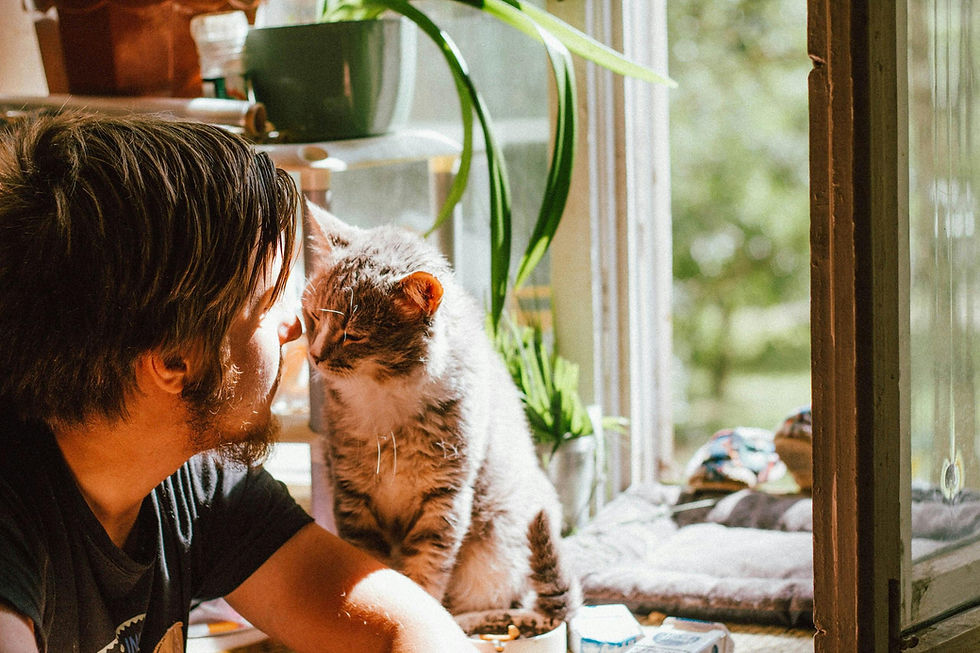Preparing Your Dog or Cat for a Stress-Free Visit: Tips from My Pet’s Vet
- May 10, 2024
- 2 min read

Visiting the veterinarian or groomer can be stressful for pets and their owners. Stressed dogs or anxious cats can make these visits even more challenging. However, with the proper preparation and support, these trips can become much smoother for everyone involved. Here at My Pet's Vet, our team is committed to ensuring the well-being of your furry friend.
Familiarize Your Pet with Handling:
Before the appointment, gently handle your dog or cat, especially in areas the veterinarian or groomer may examine. Gentle handling can help reduce anxiety during the visit. The American Society for the Prevention of Cruelty to Animals (ASPCA) recommends gradually introducing your cat and dog to being touched on their paws, ears, around their face, and yes, even their hind quarters.
Practice Desensitization:
Get your cat or dog accustomed to the sights and sounds they may encounter during the visit. Use positive reinforcement techniques like playtime or treats to associate these stimuli with positive experiences. Gradual desensitization can help reduce fear and anxiety in pets which can lead to more stress-free visits.
Use Calming Products:
Consider using pheromone-based products or calming supplements recommended by your My Pet’s Vet veterinarian to help alleviate anxiety in your dog or cat. These products can be effective in reducing stress during veterinary and grooming visits. Some pheromone-based products and calming supplements may require a prescription, depending on the product's specific formulation and regulations in your region. Some calming products include Adaptil, Feliway, Solliquin, and Zylkene. Contact your veterinarian for a recommendation before using these or similar products.
Schedule Regular Wellness & Grooming Visits:
Regular check-ups or check-ins can help your pet become more accustomed to the veterinarian or groomer, making future visits less stressful. We cannot emphasize the importance of preventive care and grooming in maintaining your pet's health and well-being.
When to Seek Specialized Help:
Consult a veterinary behaviorist or certified animal trainer if your dog or cat exhibits severe anxiety or aggression. These specialists can provide personalized guidance and training techniques to address your pet's specific needs.
Communicate with Your Vet:
Inform your veterinarian or groomer about your pet's behavior and any concerns you may have. Honest communication allows them to tailor their approach to suit your pet's individual needs and make accommodations, such as scheduling quieter appointment times, using distraction, treats, gentle control techniques, or providing sedation if necessary.
Utilize Sedation if Needed:
Sometimes, sedation may be necessary to safely handle an aggressive or highly anxious pet during veterinary or grooming procedures. A My Pet’s Vet veterinarian can assess your dog or cat's condition and recommend appropriate sedation options to ensure their well-being and the safety of the veterinary and grooming teams.
How My Pet's Vet can help your dog or cat enjoy a stress-free in-home visit:
At My Pet's Vet, we understand the unique challenges that aggressive dogs or skittish cats may present during veterinary or grooming visits. Our compassionate team is dedicated to providing a supportive and stress-free environment for every pet in our care. By following these tips and partnering with our experienced veterinarians, you can help ensure your pet receives the care they need while minimizing stress and anxiety.










Comments